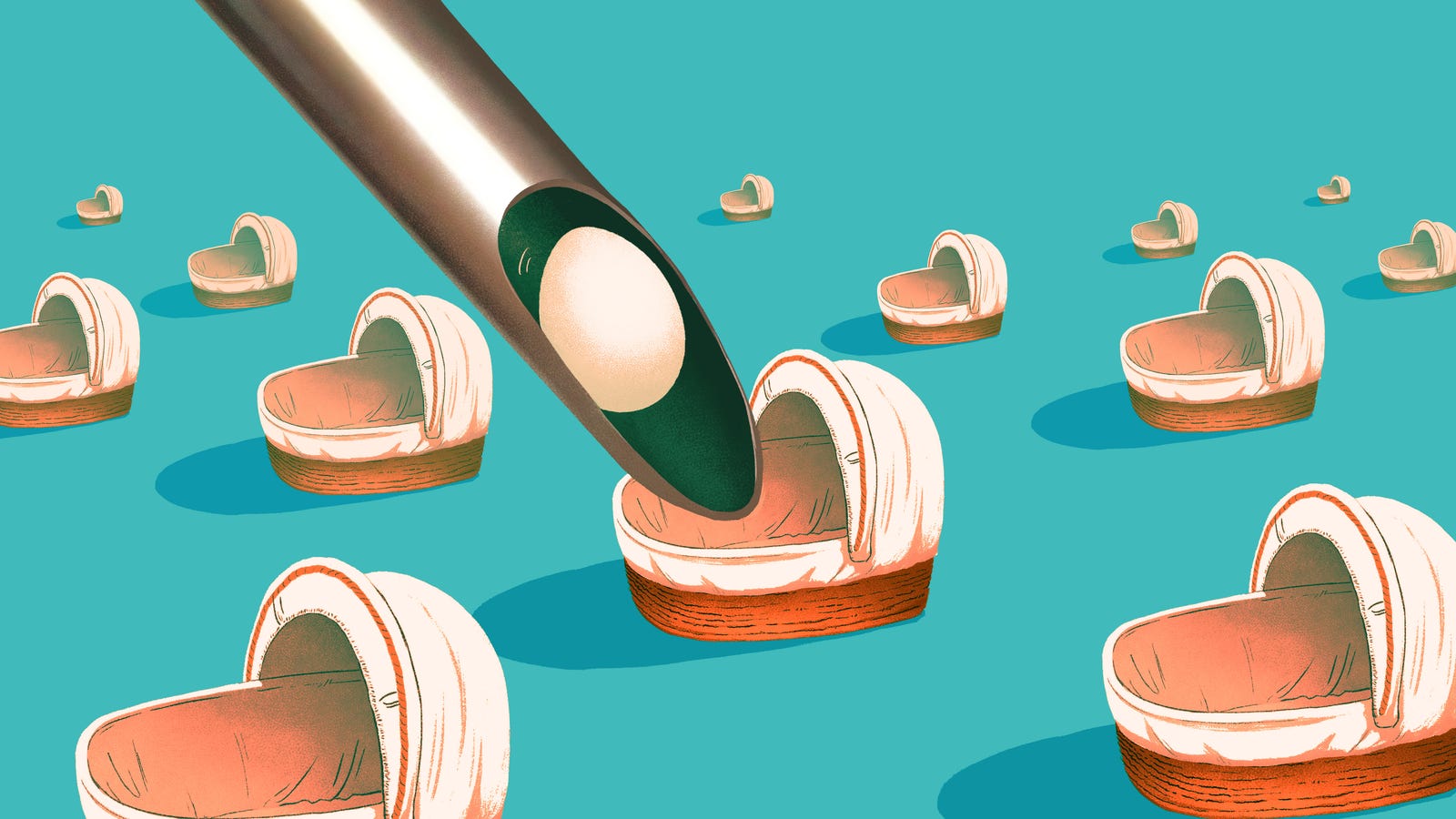Centers that Pay for Egg Donations
- Happy Beginnings. Pays: Up to $15,000. ...
- Growing Generations. Growing Generations will pay you $8,000 for your first egg donation. ...
- The World Egg Bank. The World Egg Bank will pay you between $3,000 and $6,000 per donation. ...
- Center for Human Reproduction. ...
- Conceive Abilities. ...
- Egg Donor America. ...
- Egg Donor. ...
- Circle Surrogacy. ...
- Fairfax EggBank. ...
- Family Creations. ...
How to get paid for donating your eggs?
Egg donor payments are broken down into two disbursements. The first payment made to an egg donor is $750 and is paid upon start of injectable medications. The balance of an egg donor’s compensation is paid after the completion of the egg retrieval procedure regardless of the number of eggs that are retrieved.
What are the requirements for donating an egg?
Jun 29, 2018 · Compensation can vary quite a bit, depending on where you donate your eggs. Usually, egg donors are usually paid between $5000 and $10,000 per cycle. At Bright Expectations, we offer our egg donors a compensation package that is a bit higher than the average, which includes: A payment of $8000 to $10,000 per cycle.
How often can I Donate my Eggs?
Egg donor compensation Along with the appreciation and gratitude from your recipients, our egg donors are given a financial compensation for fulfilling their donor responsibilities. The egg donation pay ranges from $6,500 to $30,000. First time donors begin at $6,500 with increased compensation for subsequent cycles.
What are the requirements to become an egg donor?
Starting compensation for egg donors in these areas can be as high as $6,000-$7,000 (as compared to $3,000 in Midwestern states). Become an Egg Donor If you have questions about selling your eggs with The Donor Solution, call us today at (713) 827-0301. If you’re ready to become a donor, start by filling out our initial application! Sources:

Is it painful to be an egg donor?
The egg donation process should not hurt. After all, this is likely to be the first question on your mind whenever you're considering donating your eggs. The egg collection is considered a minor invasive procedure done under sedation.Mar 31, 2021
How much do you get for donating eggs?
What are the average compensation rates for egg donation? Compensation can vary quite a bit, depending on where you donate your eggs. Usually, egg donors are usually paid between $5000 and $10,000 per cycle.Jun 29, 2018
How much is a man's sperm worth?
Donors through the Seattle Sperm Bank can earn $100 per approved donation. Donors through the Sperm Bank of California earn $140 per approved sample, with most donors earning between $500 and $700 per month.
Can you still get pregnant if you sell your eggs?
Are there any restrictions during the process? You can get pregnant during the egg donation process, so we ask that you abstain from intercourse during the process. Your ovaries will become enlarged during the egg donation process.
How Much Money Do Egg Donors Get Paid?
Some young women who are thinking about donating their eggs feel a little weird about asking this question. We get it. Egg donation is a very personal decision, based on generosity and altruism. At first, it can seem kind of strange to bring money into the equation when you’re help a waiting family in this really amazing way. Trust us, it’s not.
Why do people pay egg donors?
Straight up: egg donors deserve to be compensated fairly. While donating your eggs is not a very difficult or time consuming process (from start to finish, the whole thing takes a couple of months, with just a week or two on medication, 6 to 8 visits to the clinic, and one quick egg retrieval procedure at the end) it is still a serious commitment.
What are the average compensation rates for egg donation?
Compensation can vary quite a bit, depending on where you donate your eggs. Usually, egg donors are usually paid between $5000 and $10,000 per cycle. At Bright Expectations, we offer our egg donors a compensation package that is a bit higher than the average, which includes:
What will you do with your egg donation compensation?
As an egg donor, you are making someone’s lifelong dreams come true. And hey–you also have dreams of your own! You deserve to follow them. The compensation you receive for donating your eggs can be an amazing first step towards chasing down your goals and building a future you’re excited about.
How much does an egg donation cost?
The egg donation pay ranges from $6,500 to $30,000. First time donors begin at $6,500 with increased compensation for subsequent cycles. The egg donation compensation rewards you for your time, effort, and dedication.
Is egg donation an altruistic act?
Egg donation is an altruistic act and for many egg donors, the compensation is not the main motivation to donate eggs but rather the participation in giving the miracle of life.
How much do women get paid for their donation?
On average, women are compensated around $4,000 to $10,000 for their donation. The actual amount an individual donor will receive may depend upon a variety of factors, such as the following¹:
What are the expenses of a donor?
Certain other expenses will be paid directly to you (or to a non-agency professional working on your behalf, such as a doctor or attorney). The following are examples of such expenses: 1 Additional medical costs (not related to initial screening)#N#– Genetic testing, medications, health monitoring#N#– Genetic counseling (as needed) 2 Fees for review of donor agreement by an independent attorney 3 Any additional agreed-upon support
How many times can you donate eggs?
That said, unlike donating blood plasma for money where you can donate few times a month, most fertility and donation centers only allow you to donate eggs up to 6 times in total.
How much does Growing Generations pay for egg donation?
Growing Generations will pay you $8,000 for your first egg donation. And, then for every donation after that, you’ll receive $10,000. When you start your medications, you’ll get paid $750, and then the rest of the money once the egg retrieval process is complete.
How long does it take to recover from an egg donation?
The egg donation cycle takes from 3 to 5 weeks in total from when the injections begin, and the whole process including application, pre-screening, etc., can take up to 6 months.
How old do you have to be to donate to a charity?
Required Donor Age: 20 to 29 years old. For your first donation, you get paid $7,000 and this fee increases by $500 following each successful donation. Since you can donate up to six times, you could potentially earn up to $9,500 for your sixth donation. Visit the website to complete a donor application.
How many visits to the doctor for a blood test?
Since you have to be monitored while taking injections and undergo screening tests, like blood work and ultrasounds, expect a lot of visits (around ten plus) to your doctor’s office.
How much compensation do egg donors get?
The average amount of compensation can range from $5,000 to $10,000 plus expenses, depending on experience and the individual arrangements.
Do egg donors get paid?
However, the amount egg donors are paid doesn't vary greatly between cities like Los Angeles, San Francisco, Chicago and Houston.
How long does it take to donate an egg?
The actual process of egg donation takes two weeks, however the screening process can take six weeks. At Shady Grove, the process starts off with an online application that involves demographic info, health history including BMI, family history, all the FDA questions about travel.
How many times can you donate sperm?
Because of this, the six time limit is not very well monitored. Someone could donate six times at one hospital, and then six times at another, though you’d hope they wouldn’t. Sperm banks also have a limit to the amount of times you can donate, though it varies from place the place.
Is egg freezing still a new technology?
Since egg freezing is still a relatively new technology, a donor mostly waits to match up with a recipient couple before undergoing the process. At Shady Grove, Purcell says only about 12% of their cycles are previously frozen eggs, while the rest are donors and recipients undergoing the treatment together. Dr.
Is egg donation regulated?
1. Egg donation is a highly regulated part of fertility treatments. Dr. Levine says that the FDA treats eggs just like any other organs when it comes to donations, and there are lots of rules and regulations in place to become an egg donor, just like with any tissue donation. 2.

Popular Posts:
- 1. where do you go to donate food at the houston food bank
- 2. what organ did he donate to her son in the best of me
- 3. where to donate blood in dc
- 4. where to donate newspapers
- 5. if your body replenishes donated blood in 48 hours why do you have to wait 56 days to donate again
- 6. where can i donate money
- 7. why can't you donate blood with low iron
- 8. where can i donate clothes in oceanside ca
- 9. where do you go to donate blood
- 10. where do i donate my eggs